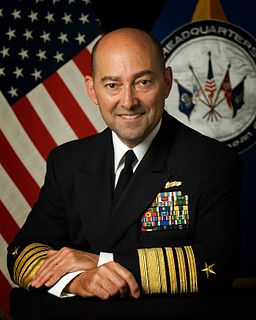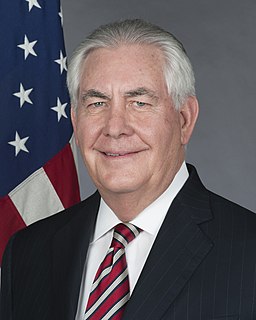A Quote by David Petraeus
Leading the coalition military effort during the surge in Iraq in 2007 and 2008 was the most important endeavor - and greatest challenge - of my 37 years in uniform.
Related Quotes
When it comes to preventing Iran from obtaining a nuclear weapon, I will take no options off the table. ... That includes all elements of American power: a political effort aimed at isolating Iran, a diplomatic effort to sustain our coalition and ensure that the Iranian program is monitored, an economic effort that imposes crippling sanctions and, yes, a military effort to be prepared for any contingency.
If they succeed in creating an inclusive structure in virtually any peaceful form, Iraq succeeds. If they fail, the U.S.-led coalition fails almost regardless of its military success and that of the new Iraqi forces, and Iraq will move towards division, paralysis, civil conflict and/or a new strongman.
People don't tend to notice, but in the past 10 years especially there's been a lot of growth in how I write songs and what goes into them. You can listen to Mountain Goats from 1991 to 2007 and never hear a seventh chord. In 2007 or 2008, I started working on the piano to grow as a songwriter. I started throwing major sevens in and sixes and more interesting stuff.
I was in Iraq in the worst period, 2006, but from 2006 to 2008, and especially through 2011, the American military and the government of Iraq made huge strides in making that country a source of stability with a relatively representative government that was seeking pluralistic engagement from all the factions within the government.































